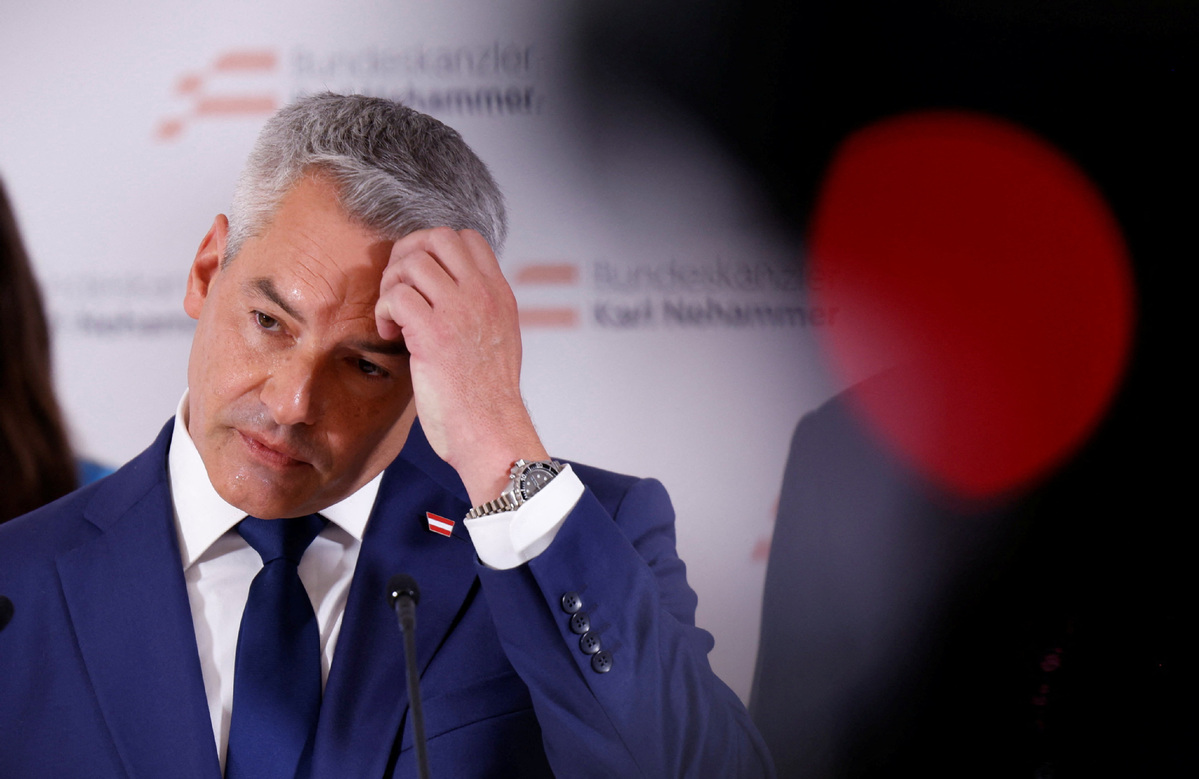Path for Austria unclear after chancellor resigns
By Jonathan Powell | chinadaily.com.cn | Updated: 2025-01-07 05:28

Coalition talks in Austria collapsed during the weekend when Chancellor Karl Nehammer resigned, raising the prospect of the far-right Freedom Party forming a government.
The resignation announcement came after the liberal New Austria and Liberal Forum, or NEOS, withdrew from negotiations with Nehammer's People's Party and the Social Democrats amid budget disputes.
The political deadlock stems from September's general election, when the Freedom Party, or FPO, achieved a historic win, although other parties initially refused to work with its leader, Herbert Kickl.
In October, Austria's President Alexander Van der Bellen tasked Nehammer with forming a coalition government.
The leadership turmoil comes at a critical economic moment for Austria. The next government must find savings of 18 to 24 billion euros ($18.5 to $24.7 billion) to meet European Commission requirements, with the country battling a two-year recession, rising unemployment, and a budget deficit of 3.7 percent of GDP, which is above the European Union's 3 percent limit.
On Sunday, Van der Bellen announced talks would be held with FPO leader Kickl on Monday, noting People's Party resistance was weakening and saying that "a new path may be opening up that did not exist before".
The People's Party on Monday named General Secretary Christian Stocker as Nehammer's successor, with Stocker immediately signaling an openness to working with the far-right FPO.
"We are ready for talks with the FPO," he said, welcoming Van der Bellen's decision to invite Kickl to form a government.
Announcing his resignation on Saturday, Nehammer said that despite "long and honest" negotiations with the center-left to counter far-right gains, talks had ultimately failed.
He blamed "destructive forces" that had "gained the upper hand" within the Social Democratic Party, or SPO, adding that his People's Party refused to support a program he claimed would harm economic competitiveness.
"The People's Party stands by its promises: We will not agree to measures that are hostile to benefits and business, nor to new taxes," Nehammer said.
In a statement, SPO leader Andreas Babler said he regretted the collapse of negotiations.
"This is not a good decision for our country," he said, pointing to disagreements over addressing the "record deficit" from the previous administration as a key obstacle in the talks.
The leader of NEOS, Beate Meinl-Reisinger, abandoned the talks citing a lack of agreement on key issues, saying that negotiations had failed to achieve a consensus on "fundamental reforms".
The FPO, which won September's election with 29 percent of the vote ahead of the People's Party's 26.3 percent, and Social Democrats' 21 percent, has previously held power in coalition governments.
Recent polls suggest its support has grown further, making it likely to welcome new elections.
In a statement on X, the FPO criticized the three months of failed coalition talks as creating "chaos instead of stability".
























